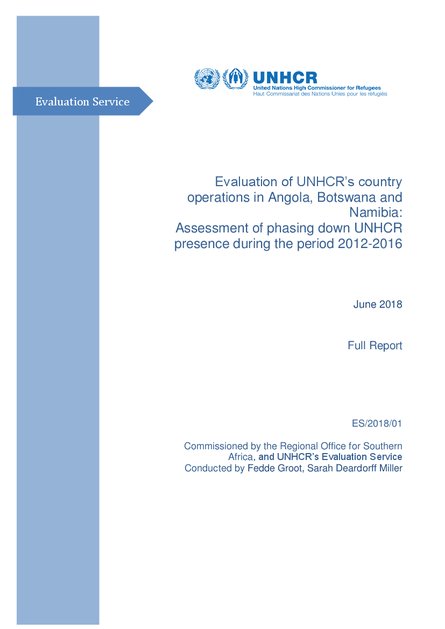
In 2013, against the background of a growing funding shortfall, UNHCR decided to reduce its footprint in Southern Africa. Per a series of decisions, UNHCR’s operations in Angola, Botswana and Namibia were intended to significantly phase down and/or close. In the years that followed, phasing down was realised in significantly different ways in each of these countries. The Namibia country office closed. In Botswana, the phasing down process stalled. In Angola, a new refugee influx caused the reversal of the downscaling.
The present external evaluation was commissioned by the Regional Office for Southern Africa in Pretoria (ROSA) and managed by the UNHCR Evaluation Service. The evaluation explored four main areas of interest, and this report is structured accordingly. First, it clarified, analysed and assessed the decision-making process to phase down UNHCR’s operation and/or presences in the three countries concerned. Second, it examined the planning for phasing down and third, implementation of these plans through 2016. Finally, based on the findings, this evaluation highlights lessons learned and specifies recommendations that apply to the countries concerned and ROSA. They are also relevant to UNHCR in the preparation and planning of phasing down operations and closure of office presences elsewhere, and relate to broader questions regarding the global role of UNHCR.
These four main areas of interest were explored with the help of a set of pre-established key evaluation questions. Information was gathered mainly through the review of documents and other records, as well as interviews with a variety of stakeholders, including UNHCR staff and former staff at Headquarters and in the Field, government officials and other partners, as well as refugee representatives. In addition, a workshop was held in Pretoria with senior UNHCR staff from ROSA and the Southern Africa sub-region to present and test preliminary findings, and to sharpen conclusions and recommendations.
